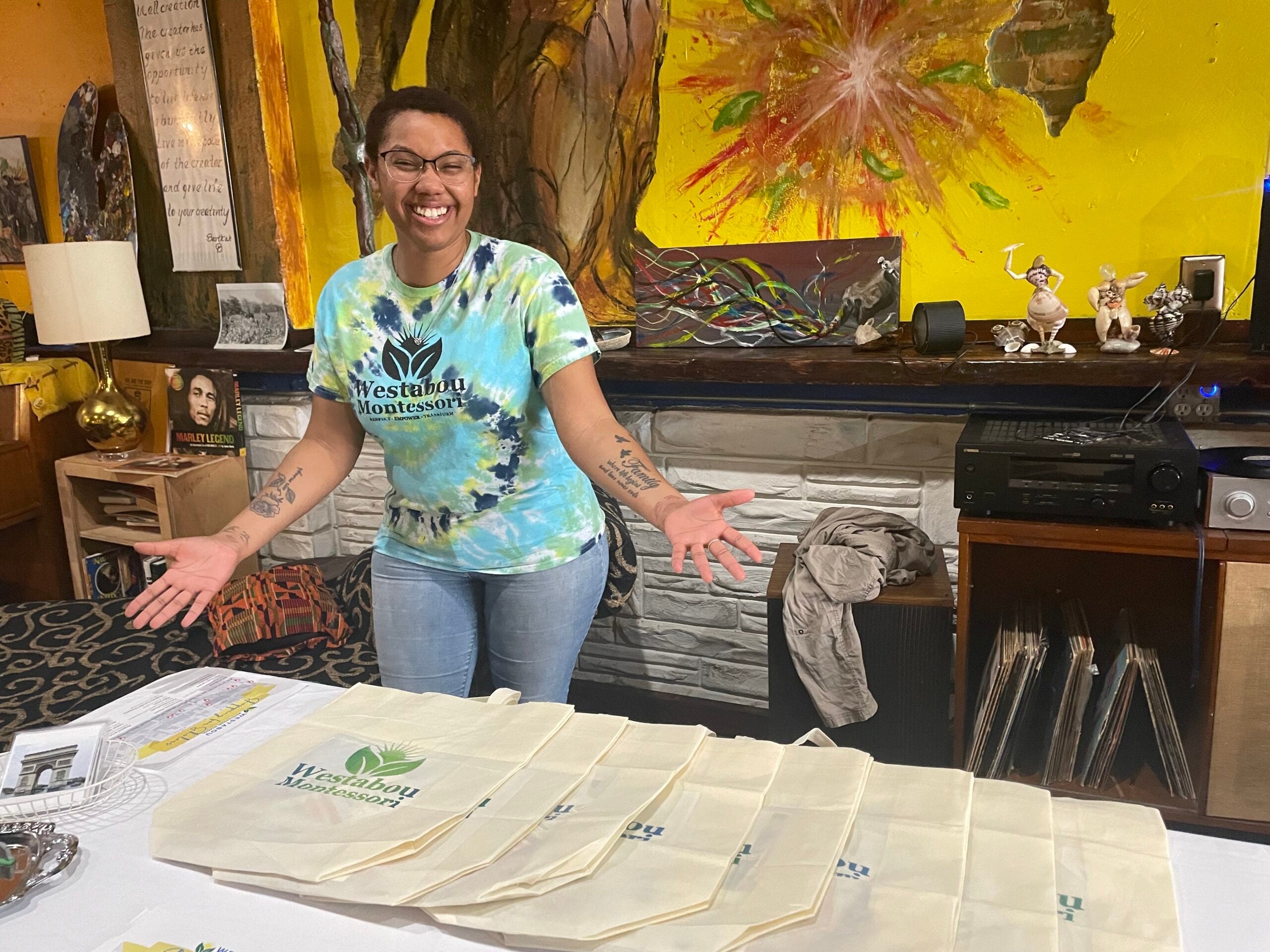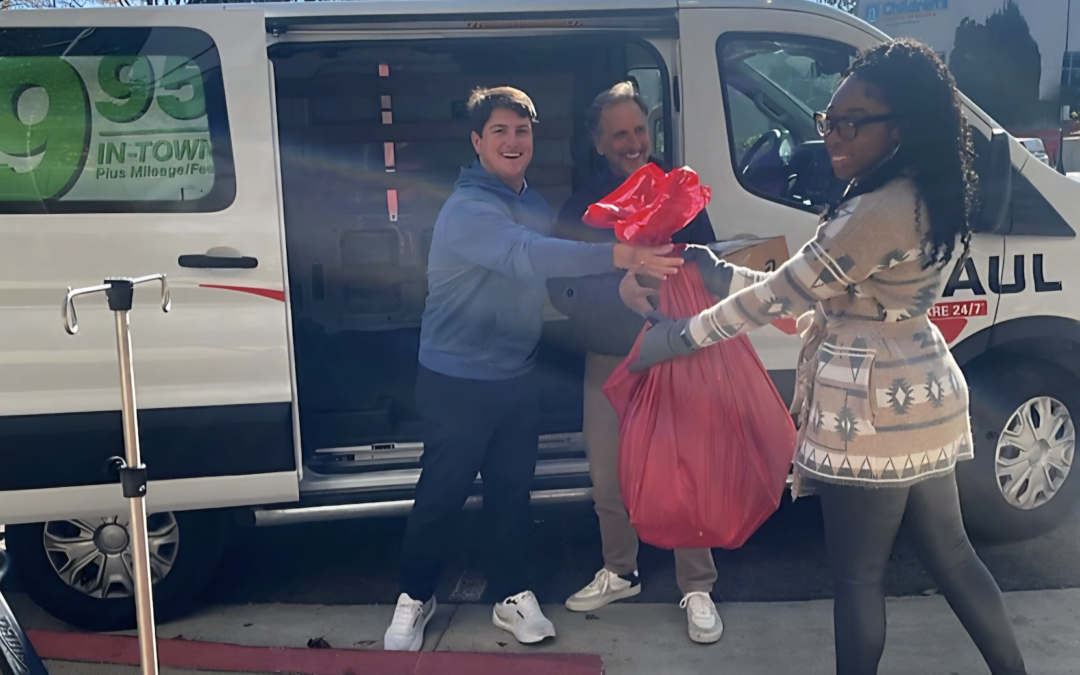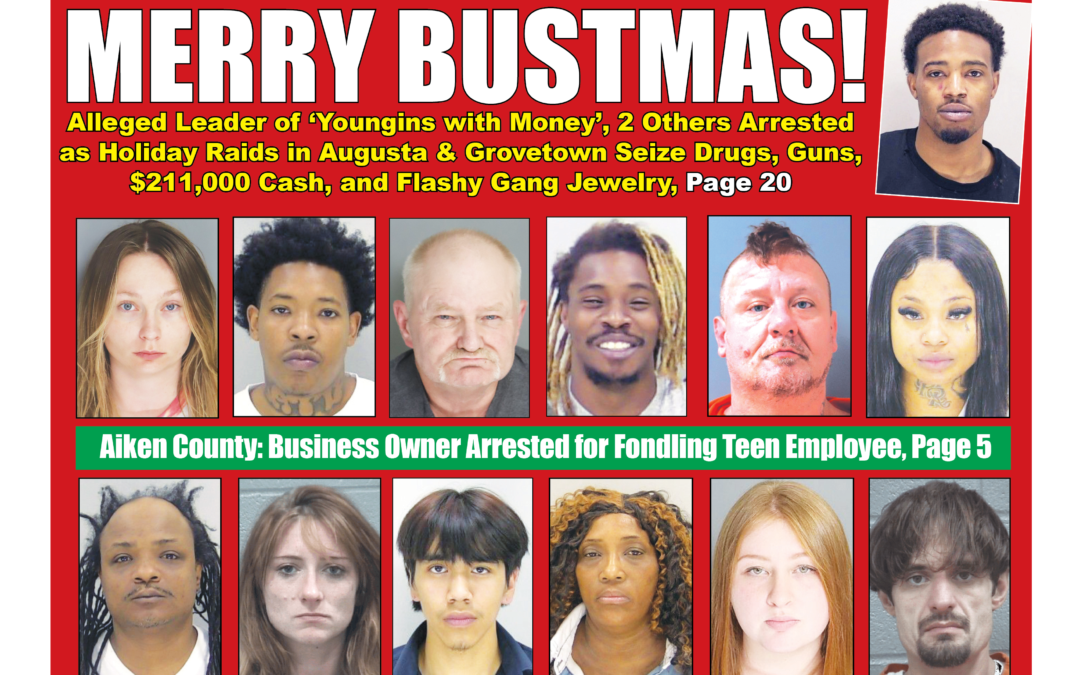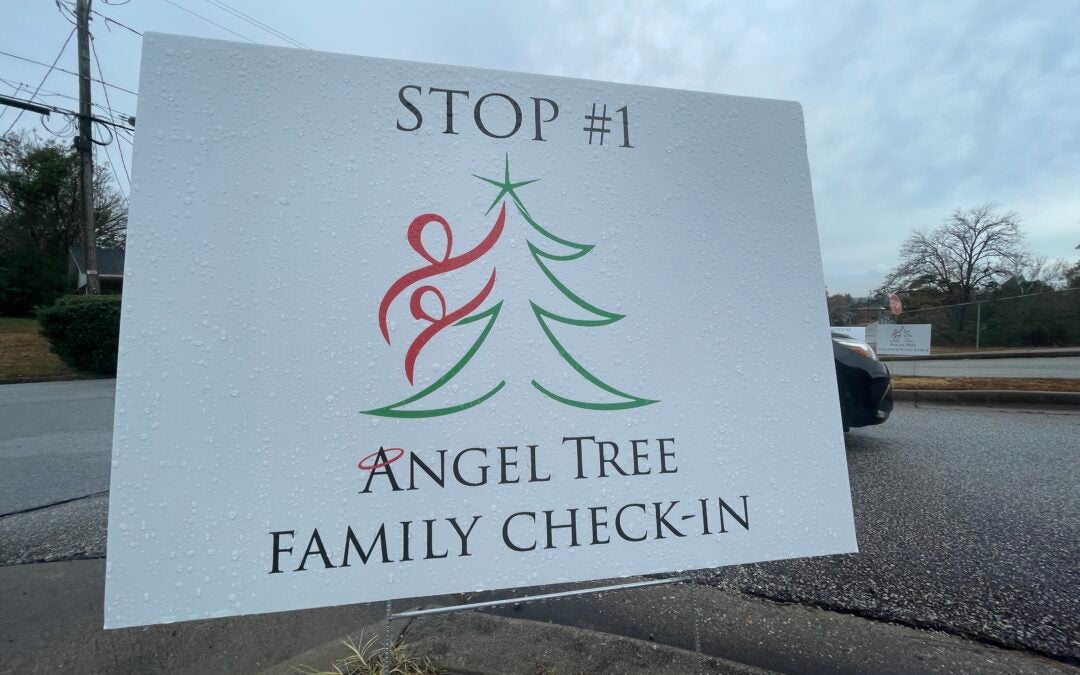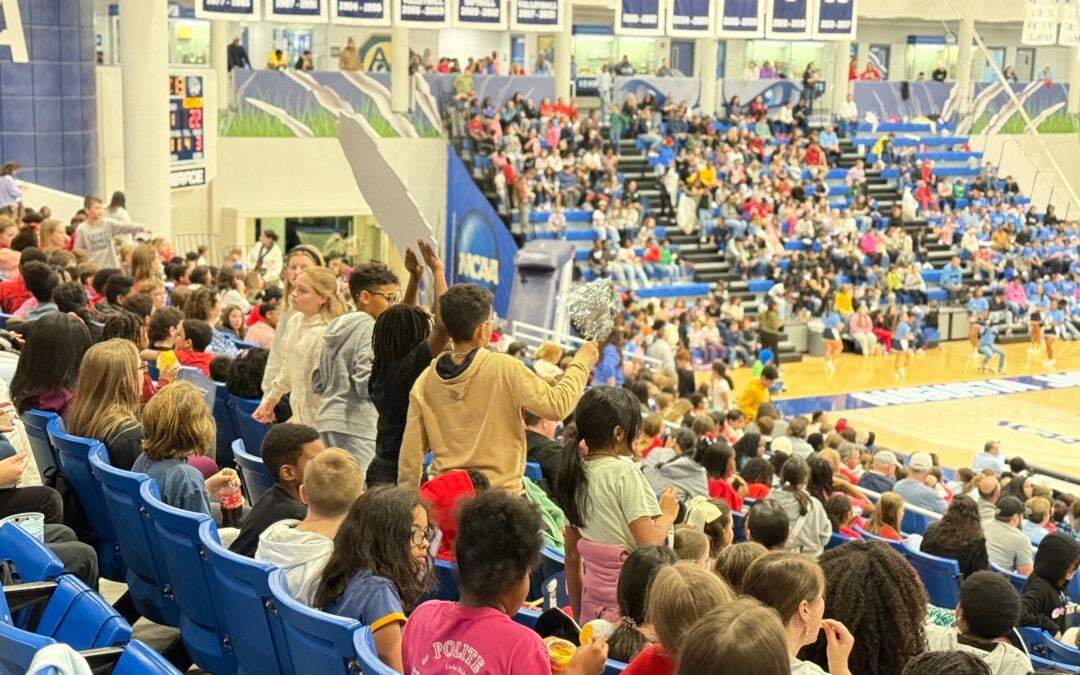Westabou Montessori School held its Shopping for Scholars event, Saturday afternoon in downtown Augusta.
From 2 – 4 p.m., 10 merchants participated by offering percentages of their sales toward the school’s scholarship fund.
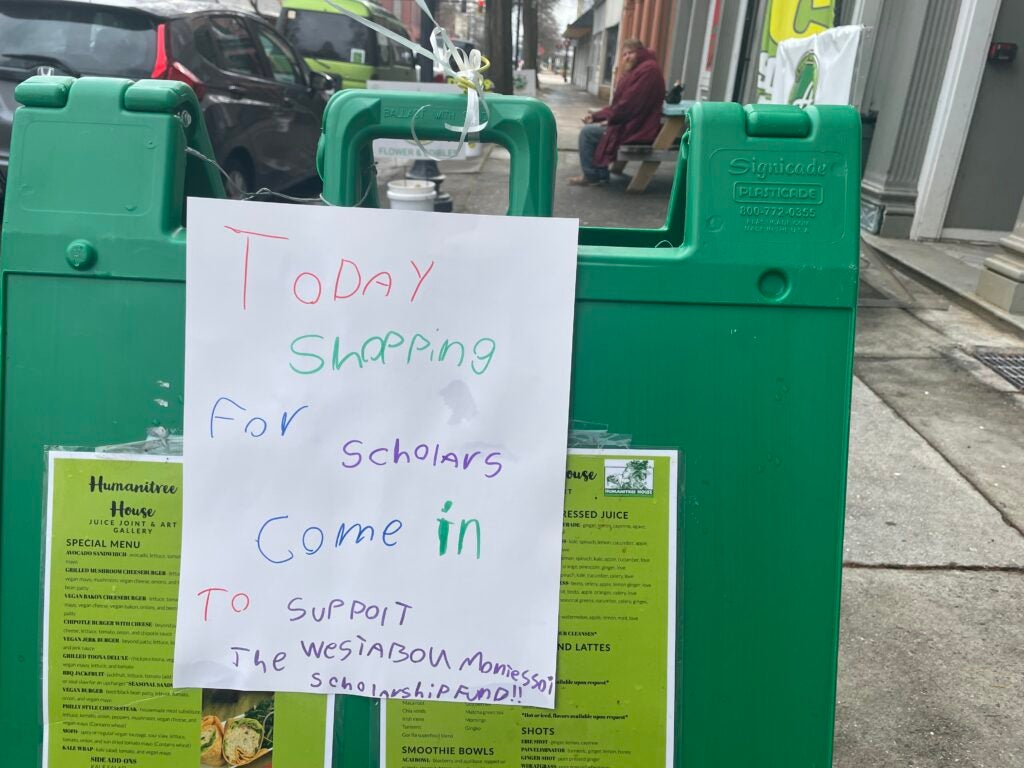
The accredited, non-profit institution currently schools some 100 children, ages two to 15, using the education method developed by Italian physician Maria Montessori in the late 19th century.
Montessori schools emphasize autodidactic approaches to learning for children, using their natural interests to facilitate study. Teachers are called “guides.” There are programs for toddlers, primary schoolers (called the “Children’s House”), lower (ages six to nine) and upper (nine to 12) elementary school children and adolescents (12 to 15).
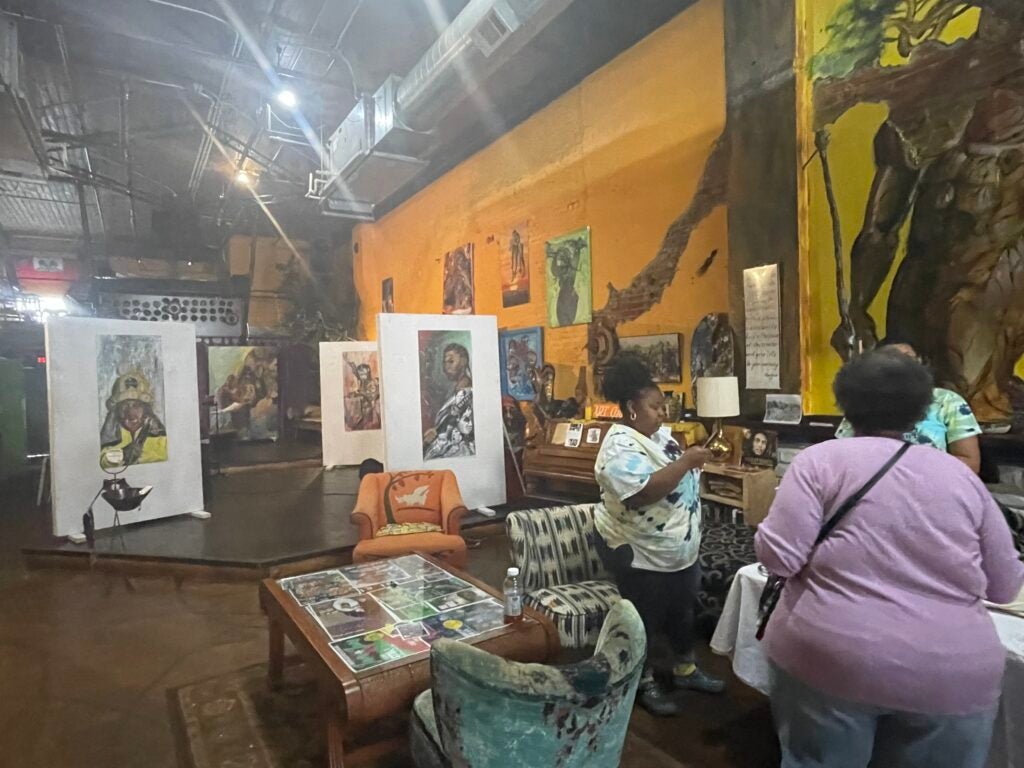
“Montessori is different because our focus is the child,” said toddler guide Selina Abner, underscoring that the self-directed pedagogical style doesn’t just allow children to merely do as they please, but entails preparing organized lessons. “We call it following the child.”
Seven of the 10 participating shops — Art on Broad, Augusta Candle Company, Augusta & Co., the Earth Pantry, FIELD Botanicals, Halo Salon and Humanitree House — hosted tables at which guides and students camped to greet curious visitors, to share information about the Westabou school.
Customers would begin at Humanitree House, on 305 Eighth St., where they could pick up Westabou shopping bags and maps to stores taking part in the event. There, Abney manned the table where shoppers could learn about the school’s Independence and Early Language Skills curriculum.
Figurines of historically significant architectural structures from around the world were laid out on the table, alongside cards with photos and information about them. Children are encouraged to match the cards with the figurines. This activity, along with virtual tours, is designed to inspire kids to inquire more about both the buildings and their respective parts of the world, Abney explained.
MORE: Jewish community observes International Holocaust Remembrance Day
“It… gets them into critical thinking and asking questions,” she said. “Our classes are for two- to three-year-olds, so it’s very amazing to see two or three-year-olds ask questions about the places these things are from.”
At Earth Pantry, Children’s House guide Terri Kilcrease told visitors about the school’s Practical Life and Intro to Reading classes. Students aged three to six undergo one-on-one lessons, silently, to emphasize fine motor skills and using tools. One exercise has kids learning about portions by using different spoons to pour measures of grains. Other activities include handcrafts.
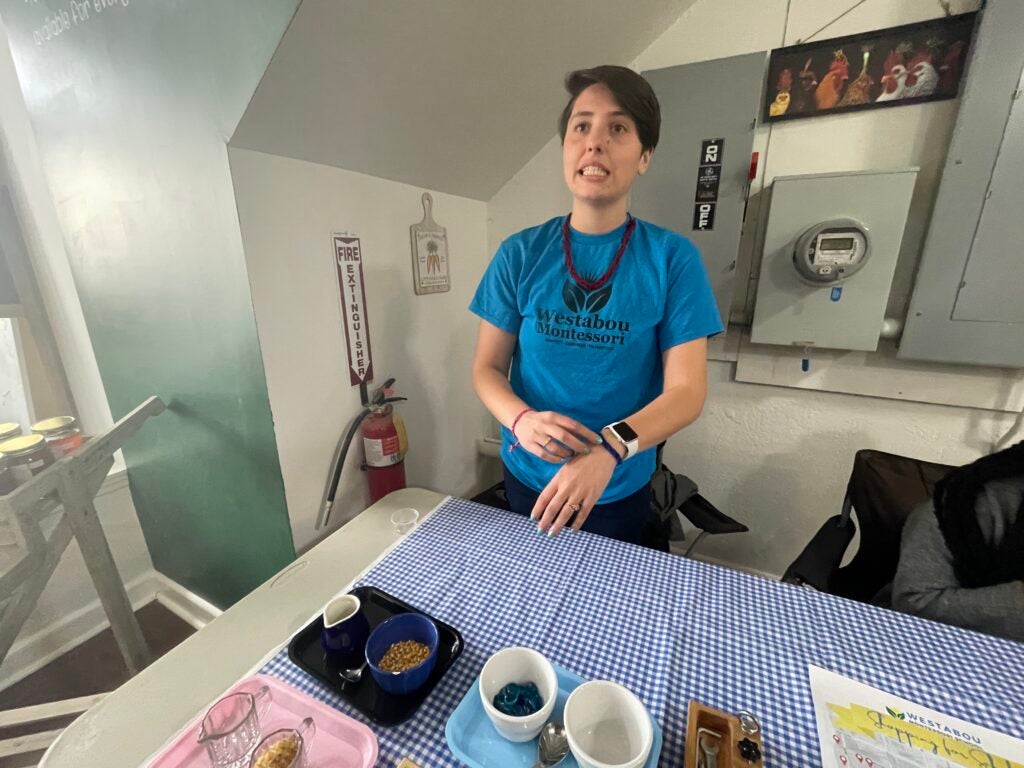

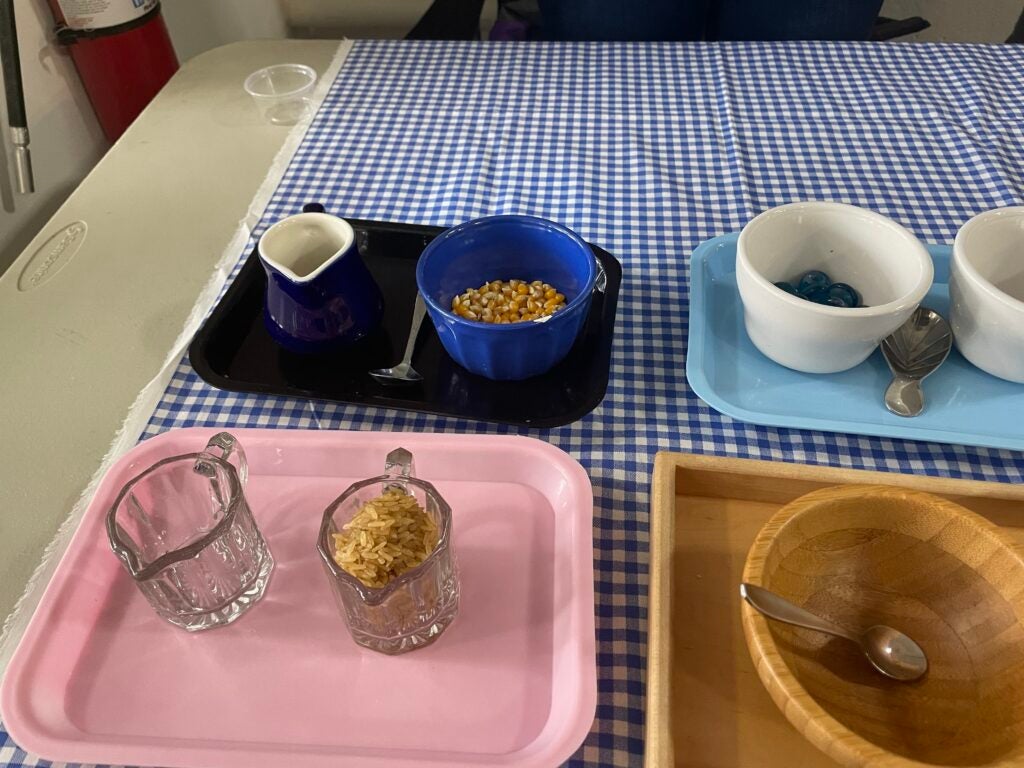
“[The lessons] give real life experience that they can use in daily life, but it also builds their hands in a specific way to make them ready to learn in the language area,” said Kilcrease. “They learn knitting, crocheting and sewing… They made like a whole bag of gifts for their families and brought them home for Christmas.”
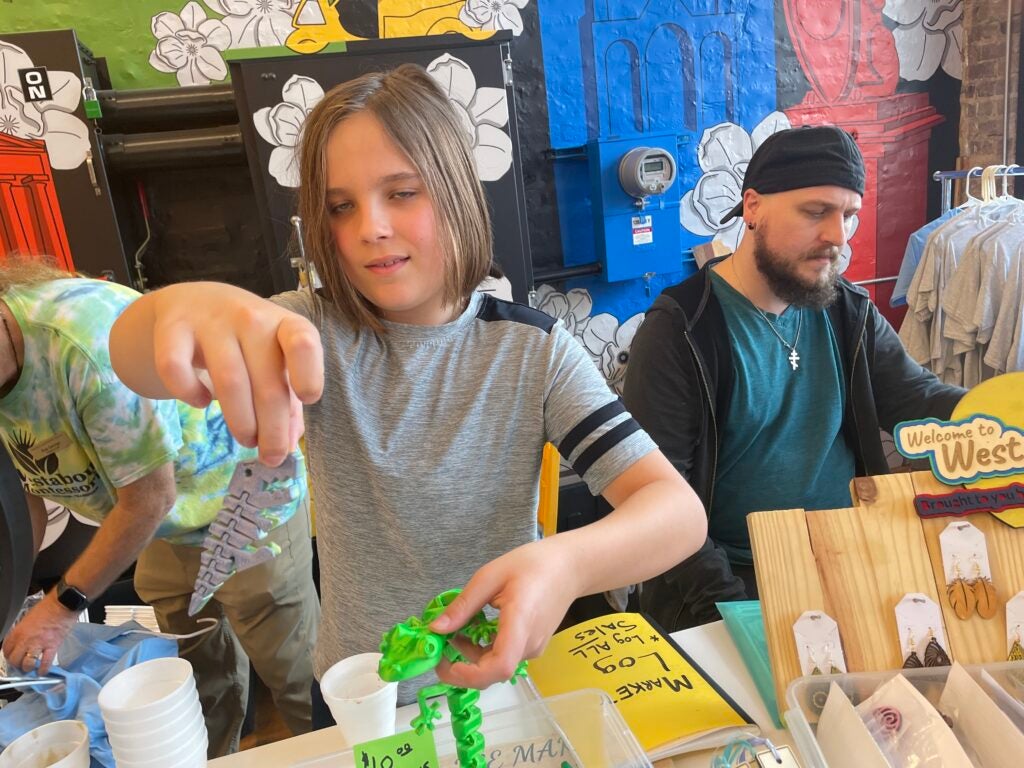
Entrepreneurship and leadership are also an aspect of the school’s program. Business math, using spreadsheets and building writing portfolios are among the skills Westabou guides help pupils develop. Per their various interests, students can go into laser cutting and 3D printing, to craft items to sell on their own.
Upper elementary student Zachary Peplinsky attended the Microeconomy table at Augusta & Co., where he helped guide Rus George sell wares made by students.

“Having a business is the cornerstone of the middle school program, because we can learn about independence,” said George, noting the kids also learn how to run businesses and understand how community members interact. “Our whole civilization is built upon production and exchange, and agriculture, which we also focus a lot on. But really, the students love the business part of it.”
The Westabout Montessori School is located at 309 Crawford Ave., in the Saint Luke’s United Methodist Church building. For more information, visit www.westaboumontessori.org.
Skyler Q. Andrews is a staff reporter covering business for The Augusta Press. Reach him at skyler@theaugustapress.com.

